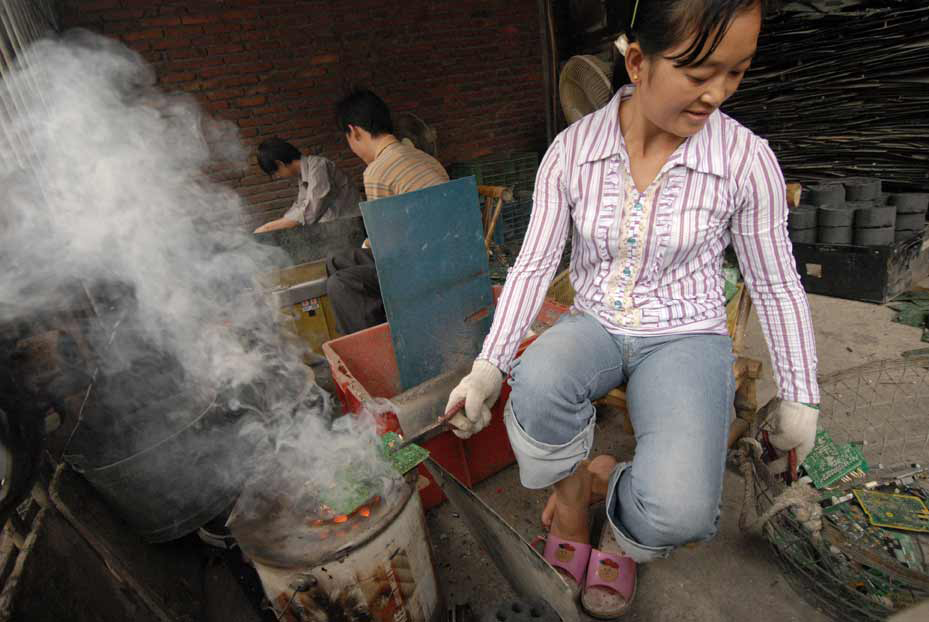
SOMO Conference on e-waste in Brussels
On Thursday 29 April, SOMO organised a conference in Brussels on the European WEEE directive on electronic waste (e-waste) from computers, televisions, mobile telephones, etc. SOMO brought together European policymakers, scientists, social organisations and the business community to discuss relevant themes such as recycling standards, collection objectives and producer responsibility, and to generate ideas for tightening up the WEEE directive. The European Parliament will be voting on a reform of this directive. Earlier research by SOMO into e-waste shows clearly that this is a growing problem, primarily for the health of people in developing countries and the environment. The problem of e- waste can be tackled by introducing changes to the recycling and production of electronics.
Forty-three interested parties took part in the conference in Brussels: MEPs, country representatives, scientists, civil servants from the European Commission, social organisations and representatives of the business community. Three subjects were discussed: 1) recycling standards, 2) collection objectives and 3) producer responsibility. With regard to the first subject, most of those present welcomed the proposal of the environmental commission of the European Parliament for the introduction of a Europe-wide recycling standard. This would not only result in environmental benefits, but would also stimulate innovation and create jobs.
The second session addressed the proposals to increase the e-waste collection objectives to 65% of the electronics appearing on the market. Opinions were divided regarding the feasibility of this objective. One important reason for this appears to be the limited availability of collection figures through the various channels and figures on the quantity of electronic waste created each year. This again makes it clear how crucial good bookkeeping is.
The scope of producer responsibility also led to debate. Member states are tending to put the burden of financing collection fully on the shoulders of electronics producers. But producers indicate that they are unable to monitor collection by other actors (such as municipal councils or supermarkets). So they also cannot be held responsible for this collection. This debate was, of course, not settled in a single afternoon, but at the end many of those present indicated that they felt that the open discussion during the conference had been very useful.
Please download the conference report and other information:
Related news
-
-
Linking labour issues in China to global brands Published on:Posted in category:Publication

-
Chain of consequences Published on:
 Joshua RosenzweigPosted in category:Publication
Joshua RosenzweigPosted in category:Publication Joshua Rosenzweig
Joshua Rosenzweig


